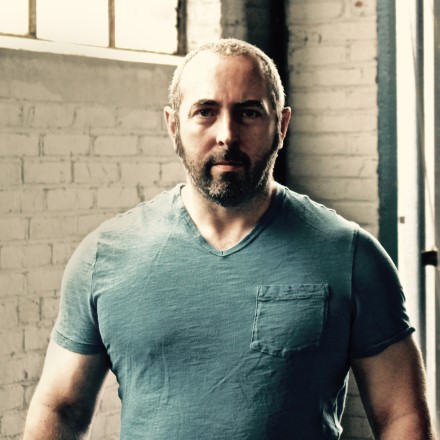In the previous article on serial killers (which can be accessed by clicking here), I presented a definition of what constitutes a serial killing spree. There were three components, that must be present:
- 1. At least three people killed
- 2. Each death/killing must be a distinct/individual event and be separated by a cooling off period
- 3. Motive(s) may be varied, and do not have to have a sexual aspect to them
With this in mind, I now want to look at some of the criminological theories that have been presented concerning why individuals commit such strings of offenses. If you’ve ever watched a film, and/or crime drama that features a serial-killer, the psychologist/profiler brought in to help crack the case will usually talk about the psychological motivations behind killing, often labelling the killer as a sexual psychopath, who is only going to increase their number of murders, at an ever-increasing rate, with shorter periods between each killing, until they are stopped etc. They may talk about the killer’s history, and how the killing spree is motivated by revenge, for having a mother who emasculated them as a young child etc. They will rarely present serial killers as being a product of society e.g., sociological factors, and yet there are criminologists who view serial killing as being the result of societal conditions, rather than purely psychological and neuropsychological/biological factors. In this article I want to take a look at serial-murder from this perspective and see how society may play a part in the creation of some serial killers.
Those who hold to this structural/sociological tradition or perspective of serial killing, will point to the fact that there have been periods in a country’s history where there have been few or no serial-killers, and times when there have been several/many e.g., in the US, in the early part of the 20th Century, there were far fewer serial killers, than in the 1970’s and 1980’s. This could be the result of improvements of crime linkage. That is, as policing and forensic methodologies improved throughout the century law-enforcement got better at identifying the similarities between murders and linking them to a single killer e.g., one of the things that helped identify Ted Bundy as being responsible for a variety of otherwise geographically unconnected killings was the ability to share photographic information/evidence between different agencies working in different jurisdictions; someone noticed that all of his/the female victims had long, brown hair that was cut in a similar style – in fact one of his intended victims (Sotrias Kritsonis) survived because when Bundy ordered her to take off her hat (it was snowing when she accepted a ride from him), he found out that she’d had her hair cut short, and he let her go i.e., he’d been carrying out surveillance on her, targeting her because of her previously long hair. However, those who propose a sociological perspective, will argue that historical context plays an important part in shaping serial killing, and will point to the fact that the 1970’s and 1980’s saw a significant increase in the number of serial killings, in a similar way that the number of mass-shootings/killings have been steadily rising since the 1990’s. If mass-shootings are the result of, and the response to societal changes and shifts, then an argument exists that serial murder could also be the result of structural changes in society.
This is not to say that society is responsible for “creating” serial killers, but rather that as society entered late modernity (the latter part of the 20th Century) it set the conditions that enabled serial-murder e.g., widening gaps in economic equality, the erosion of traditional gender roles etc., all played a part in creating the serial-killer phenomenon. This period also saw an increase in individualism, that has left certain people feeling marginalized and angry. The idea of full employment began to be eroded in the 1970’s, and the “American Dream” began to be questioned. The idea that each successive generation would improve its financial and social position no longer seemed inevitable. From a feminist criminological perspective, the fact that the majority of serial killers are men who target women sees serial killing as the result of an increase in misogynistic male violence, during this period of late modernity, that is the result of societal changes in gender relations e.g., it is a way in which a section of the male population demonstrates its power and control over women etc. There may also be a “copycat” element to serial killing that emerged in this period as killers started to be viewed like celebrities e.g., Ted Bundy, in representing himself at trial, had a nation captivated – factor in that he was good-looking, charming, and highly intelligent, and it’s almost possible to forget about the horrific and uncontrollable rages that left thirty women (those killings he confessed to) dead. This new awareness that people gained concerning serial killers has led many to develop a morbid fascination and curiosity concerning them, that for some individuals might create a limelight that they want to step into e.g., Colin Ireland killed in part because he wanted to be notorious - “idolized” and “remembered” by the public as a criminal mastermind. This same motivation can be seen in many school shooters who view Klebold and Harris (the Columbine School Shooters), as heroes, and whose killings they want to emulate.
Whilst it would be difficult to make the argument that sociological and structural changes are solely responsible for creating killers, the societal environment in which one lives and develops, is likely to have an influence in setting the conditions for such offending. It is not that everyone who lacks social capital is at risk of engaging in serial murder, but rather for some this may be a motivating factor. In the next article I will look at the neuropsychological/psychological tradition and perspective on serial killings.
Share:

Gershon Ben Keren
2.8K FollowersGershon Ben Keren, is a criminologist, security consultant and Krav Maga Instructor (5th Degree Black Belt) who completed his instructor training in Israel. He has written three books on Krav Maga and was a 2010 inductee into the Museum of Israeli Martial Arts.
Click here to learn more.

